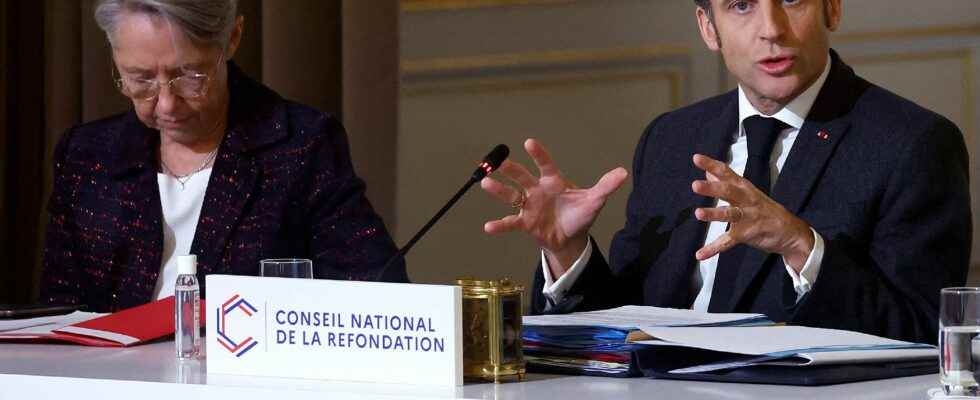“As usual, Emmanuel Macron puts his secular eggs in all the baskets”, worries an attentive observer of the file. Because a gesture goes badly, including in the government. On December 5, the Minister for the City, Olivier Klein, signs an agreement with four major federations of popular education to promote, according to the terms of the press release, “a secularism that protects, a shield rather than a sword”. The operation is carried out within the framework of the “Values of the Republic and secularism” training plan, this program, born after the 2015 attackswhich is aimed at professionals in the field, in charge of the city, youth and sports sectors (State or local authority officials, employees or associative volunteers) and now has the objective of training 40,000 per year.
However, among the signatories is the Ligue de l’enseignement, a federation of associations which rather defends a so-called “plural” or “open” secularism, in other words accommodating since the famous affair of the veil at the Creil high school in 1989, and who expressed more than reservations about the law against separatism carried by the Minister of the Interior Gérald Darmanin. “We are renewing historic partnerships without carrying out a critical evaluation and we thus continue to address service providers who do not necessarily share the same objectives as the State”, points out a specialist in these questions.
While many ministry departments are concerned, some members of the government discovered Olivier Klein’s initiative after the fact. This is the case of the Minister of Public Service Stanislas Guérini, the Secretary of State for Youth Sarah El Haïry or the Secretary of State for Citizenship Sonia Backès – the three confirmed this to L’Express . Similarly, the Council of Elders and Values of the Republic, hosted by the Ministry of National Education (the successor to the Observatory of Secularism), had not been consulted or even informed. “We would be entitled to expect a minimum of coordination and consistency, that’s what we suffer the most,” points out one of its members.
A vague definition of secularism
An inter-ministerial committee on secularism, under the chairmanship of Elisabeth Borne, was to be held on December 9 and has been postponed to the beginning of next year. “We need a common base”, recalls a minister.
The previous five-year term had already been rich in tension on the subject. Jean-Michel Blanquer had scrapped to neutralize the Observatory of secularism directed by Jean-Louis Bianco; and it was by reproaching him for being on a line too close to the Republican Spring that Richard Ferrand, then President of the National Assembly, had successfully fought the idea of his passage from National Education to Interior, in July 2020.
Where we find the ambiguities specific to Emmanuel Macron himself. L’Express had recounted this dinner of December 1, 2020, during which the president spoke with three intellectuals, Olivier Mongin, François Dosse and Olivier Abel. Secularism invites itself from the starter, when Abel stings: “The general assembly of secularism, the dissolution of the Observatory of secularism… Marlène Schiappa has gone too far on religious questions, she becomes aggressive.” The shadow of Paul Ricoeur will hover over the whole meal. Even today, light is not shed on the very definition that the executive gives to secularism, as it should be and therefore as it should be taught.
